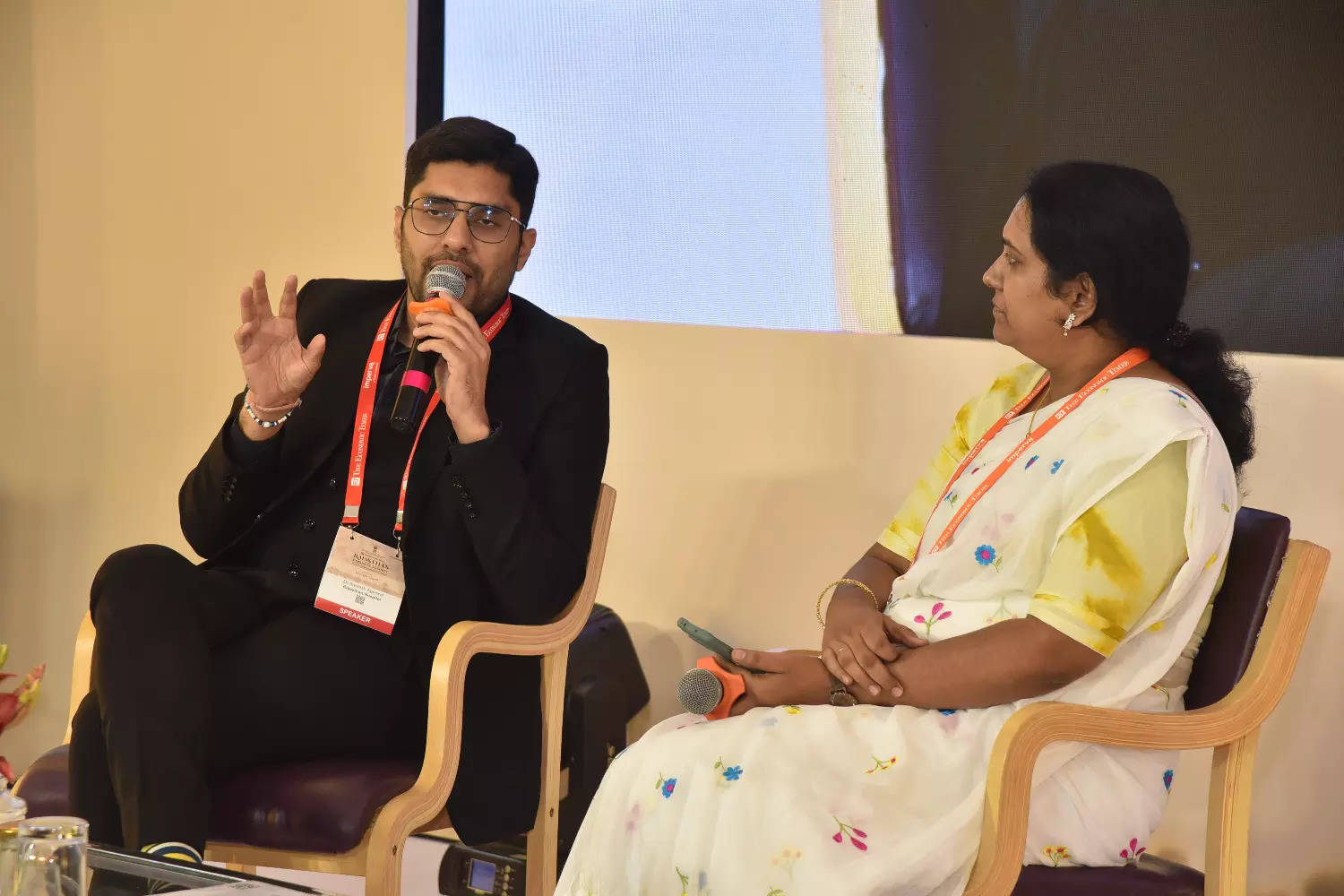Digital health kiosks could predict chronic diseases, improve early intervention in rural areas, ET HealthWorld

By Prabhat Prakash and Shilpasree Mondal
Jaipur: Digital health interventions are revolutionising healthcare, making it easier for individuals to access the care they need. With tools like telemedicine and mobile health apps, communities are empowered with vital health information that can lead to improved outcomes. However, this transformation faces challenges, including limited internet access in rural areas and gaps in technology adoption.
At the Rajasthan Business Summit organised by the Economic Times, a fireside chat titled ‘Decoding Opportunities For Next Decade’ featured Dr Sarvesh Agarwal, CEO & Vice President, Rajasthan Hospital. Prathiba Raju, Senior Assistant Editor, ETHealthworld moderated the session.
Dr Agarwal emphasised that, as a developing nation, a significant portion of the population still resides in rural areas. He stated, “Emerging technologies like AI and telemedicine are crucial for improving healthcare delivery in those regions.”
He highlighted the development of AI-based technologies designed to screen patients remotely, including an innovative programme that diagnoses tuberculosis by analysing the sound of a cough. “This AI-powered tool could be a game-changer for India’s healthcare sector, especially for early screening in rural areas where access to medical facilities is limited,” explained Dr Agarwal.
To address basic health needs, he discussed the creation of digital kiosks that can assess fundamental health metrics, such as a person’s nutritional profile, by scanning their hand. These transformative kiosks can predict the likelihood of chronic diseases, enabling early intervention and prevention.
“When it comes to telemedicine, its adoption rate escalated during COVID-19 but has since plateaued because we are focusing on highly specialised care, which may not be the best approach. We need to prioritise primary care, which would reduce the burden on government facilities, making the process more feasible and economical,” he added.
Dr Agarwal also noted that many public-private partnerships (PPPs) are concentrated at the higher levels of the healthcare chain. He suggested shifting these efforts toward primary healthcare centres, which could serve as central hubs. “This approach would allow us to effectively utilise digital infrastructure and create a targeted impact at the grassroots level,” he added.
He identified three key reasons why private hospitals are often hesitant to engage in government-run schemes: a lack of trust between the government and hospitals, frequent policy changes that create uncertainty for private players, and concerns about data sanctity due to the methods employed for data transfer and sharing by government setups.








